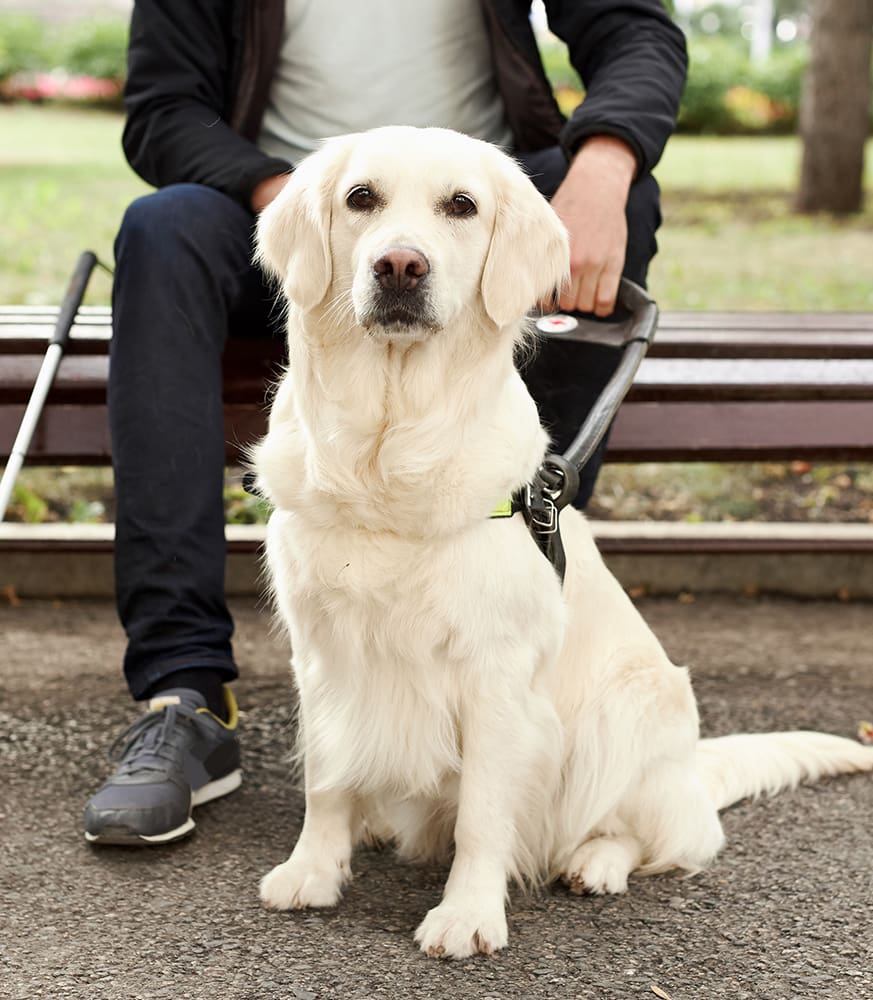Top rated service on:








![]()
![]()
What Is An Emotional Support Animal?
An emotional support animal (ESA) is any animal that is prescribed to a person with a mental or emotional disability as a part of their treatment plan. They must be prescribed by a licensed mental health worker or doctor in the handler’s state, and they must be prescribed through a valid ESA prescription letter. Since they are deemed medically necessary, an ESA must be allowed to live with their handler in almost any long-term rental regardless of no-pet policies (including most college dorms), cannot be charged pet rent or deposits, and are exempt from breed, size, or weight restrictions.
An ESA can be any animal that can be reasonably cared for in a person’s home, including a dog, cat, reptile, rodent, small mammal, bird, or fish. Unlike a service animal, an ESA does not need to undergo training to perform specific tasks; instead, they help their handler by offering support purely through their companionship. An ESA can also help a person develop a healthier daily routine.


Our Easy Emotional Support Animal Process


Pre-screening assessment


Speak with a therapist


Receive your ESA Housing Letter


Our Simple Service Animal Process


Pre-screening assessment


Complete online dog training course


Receive graduation certificate


A closer look
Emotional Support Animals vs the pack
Here’s how Emotional Support Animals stacks up against other companies
| Service Provider | Money Back Guarantee |
Legal Support | Live Consultations | Phone/Email/Chat Customer Support |
|---|---|---|---|---|
  |
||||
  |
||||
  |
||||
  |








Our Nationwide Network of Licensed Mental Health Providers
Finding a licensed mental health provider in your state is essential to receiving an ESA prescription letter, as well as to making sure you qualify for a service animal. Our nationwide team of friendly, knowledgeable, and qualified mental health professionals makes finding your perfect match simple and stress-free.
We’ve partnered with empathetic mental health professionals in every state, so that you can receive the care and support you need without having to deal with waiting lists, searching for a professional yourself, or worrying if a practitioner is legitimate or legally qualified. Our team is meticulously vetted and ready to help you.


Professional Dog Trainers to Help You Train Your Service Dog
To be considered legally valid, a service dog must be trained to perform at least one task that mitigates the symptoms of a diagnosed disability. Our team of American Kennel Club-certified professional trainers is available to help answer questions, provide video training sessions, or work with you in person to help train your service dog.
We carefully vet our trainers to ensure every member of our team is knowledgeable, experienced, and passionate about training service animals. Plus, we only work with trainers who exclusively use positive, reward-based training methods, which are both highly effective and help to build a stronger bond of loyalty, trust, and love between you and your service animal.


What Our Customers Are Saying
100,000+ Pet Parent Approved!
What is the Difference Between an ESA and a Psychiatric Service Dog?
While both ESAs and psychiatric service dogs (PSDs) help those with diagnosed mental or emotional disabilities, there are some major differences as well, including:
- A PSD must be trained to perform at least one service task to help with the symptoms of a diagnosed mental or emotional disability; an ESA requires no specific task training.
- A PSD is granted public access rights, which means they can come with you on public transport and to almost any public space; an ESA is only guaranteed access to most long-term living spaces.
- A PSD can fly with you for free in an airline cabin and does not have to stay in a carrier; an ESA is considered a “pet” by airlines, and so may not be allowed to fly with you or may be charged a fee.
- An ESA can be any animal that local zoning laws allow; a PSD can only be a dog.
An ESA or a PSD both can improve their handler’s quality of life. Some people choose to have ESAs and PSDs in order to receive the benefits of both (like being allowed to live with a cat who comforts you by sleeping with you at night, while also having a PSD that helps you run errands or go to work in person).


Frequently Asked Questions
Any person with a diagnosed mental or emotional disability can qualify for an ESA. These disabilities can include depression, panic disorder, PTSD, OCD, autism, eating disorders, addictions, or mood or personality disorders.
To get an emotional support animal, you must be diagnosed with a mental or emotional disability by a licensed mental health professional in your state. Then, that same professional must write a valid prescription letter stating your need for an emotional support animal.
As long as your licensed mental health professional has diagnosed you with a mental or emotional disability, your pet can become an ESA as long as that same mental health professional agrees that they are medically necessary.
An ESA vest, ID, collar, leash, or tag is not legally required; all you need is a legally valid ESA letter. However, many handlers choose to have their ESA wear an identifying accessory in order to avoid questions from neighbors, repair people, etc.
The Fair Housing Act requires all housing providers to provide reasonable accommodations to those with disabilities. Because of this, most pet-free housing must allow an ESA to live with you, as it is generally considered a reasonable accommodation




